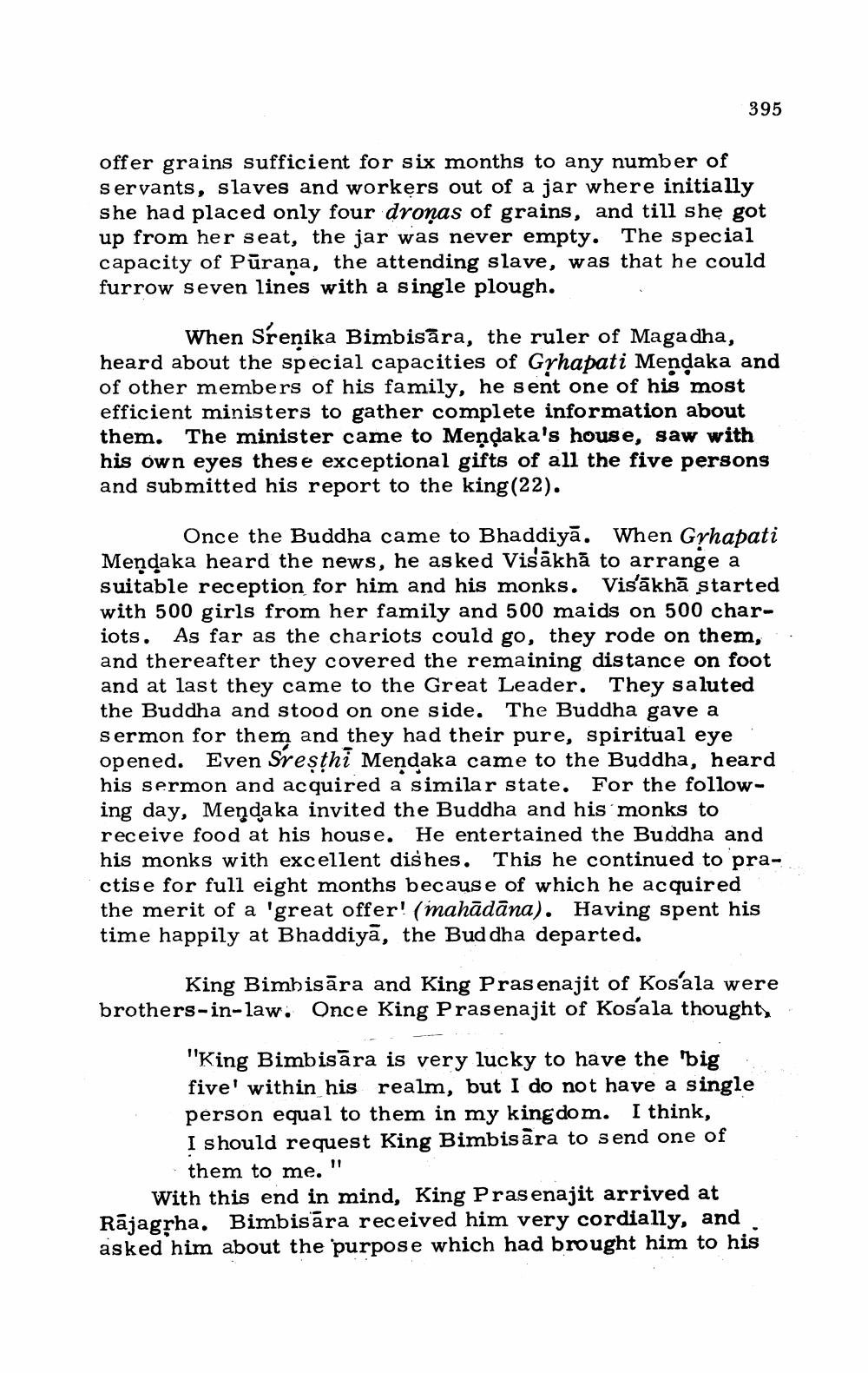________________
395
offer grains sufficient for six months to any number of servants, slaves and workers out of a jar where initially she had placed only four dronas of grains, and till she got up from her seat, the jar was never empty. The special capacity of Puraṇa, the attending slave, was that he could furrow seven lines with a single plough.
When Srenika Bimbisāra, the ruler of Magadha, heard about the special capacities of Grhapati Mendaka and of other members of his family, he sent one of his most efficient ministers to gather complete information about them. The minister came to Mendaka's house, saw with his own eyes these exceptional gifts of all the five persons and submitted his report to the king (22).
Once the Buddha came to Bhaddiya. When Gṛhapati Mendaka heard the news, he asked Visakhā to arrange a suitable reception for him and his monks. Visakha started with 500 girls from her family and 500 maids on 500 chariots. As far as the chariots could go, they rode on them, and thereafter they covered the remaining distance on foot and at last they came to the Great Leader. They saluted the Buddha and stood on one side. The Buddha gave a sermon for them and they had their pure, spiritual eye opened. Even Sresthi Mendaka came to the Buddha, heard his sermon and acquired a similar state. For the following day, Mendaka invited the Buddha and his monks to receive food at his house. He entertained the Buddha and his monks with excellent dishes. This he continued to practise for full eight months because of which he acquired the merit of a 'great offer! (mahādāna). Having spent his time happily at Bhaddiya, the Buddha departed.
King Bimbisara and King Prasenajit of Kosala were brothers-in-law. Once King Prasenajit of Kosala thought,
"King Bimbisara is very lucky to have the 'big five' within his realm, but I do not have a single person equal to them in my kingdom. I think, I should request King Bimbisara to send one of them to me.
11
With this end in mind, King Prasenajit arrived at Rajagṛha. Bimbisāra received him very cordially, and asked him about the purpose which had brought him to his




